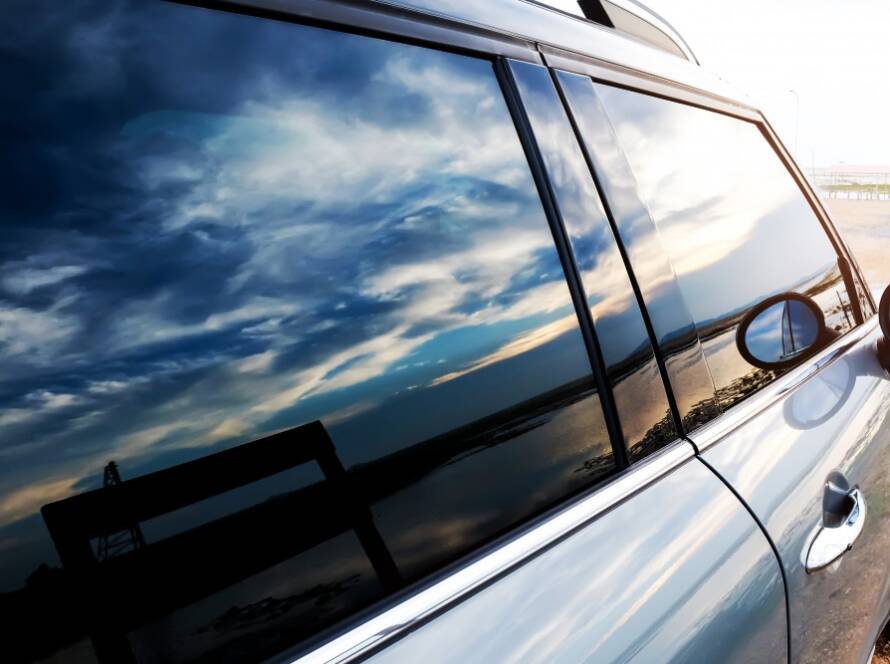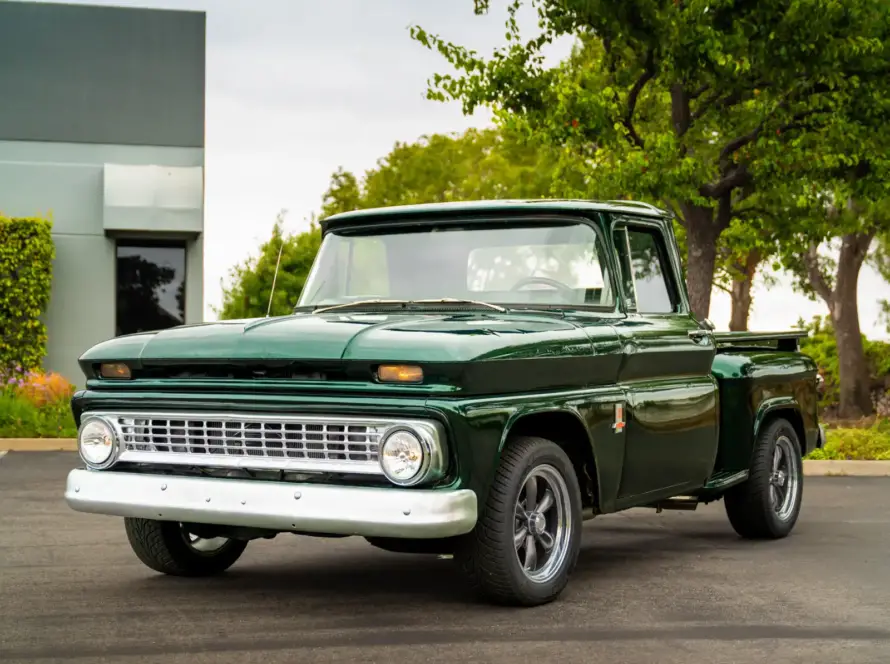Applying a custom car wrap transforms vehicle aesthetics while preserving factory paint.
The Science Behind Car Wrap Materials: Durability and UV Resistance
Car wraps are primarily composed of polyvinyl chloride (PVC) with added plasticizers for flexibility and resilience. Manufacturers integrate UV inhibitors and heat stabilizers to ensure the wrap’s integrity and appearance, particularly when exposed to sunlight. High-quality cast vinyl wraps, when properly installed and maintained, can last between 5 to 7 years, offering robust resistance against fading, cracking, and minor scratches.
This research provides foundational knowledge on the material composition and durability factors of vinyl car wraps, directly supporting the article’s discussion on different wrap types and their longevity.This guide defines key vinyl wrap finishes—matte, gloss, satin—explains specialty options, compares their attributes, and outlines how to choose the ideal finish based on style, climate, budget, and vehicle type. You will discover installation methods, maintenance best practices, leading brands, and the relationship between wraps and paint protection film. With this comprehensive overview, selecting and caring for yourcustom car wraps becomes an informed process, ensuring both stunning looks and lasting protection.
Table of Contents
- What Are the Different Types of Car Wrap Finishes?
- Matte Car Wraps
- Gloss Car Wraps
- Satin Car Wraps
- Specialty Finishes (Chrome, Carbon Fiber, Brushed, Color-Changing)
- Comparison: Matte vs Gloss vs Satin
- Reflectivity & Texture
- Durability & Maintenance
- Cost Differences
- Best Finishes by Vehicle Type
- Choosing the Perfect Wrap Finish
- Personal Style Factors
- Climate Impact
- Budget Considerations
- Vehicle Usage Patterns
- Installation Options
- Professional Installation Benefits
- DIY Car Wrap: Pros & Cons
- Installation’s Impact on Durability
- Maintenance & Care Tips
- General Cleaning for All Wraps
- Caring for Matte, Gloss & Satin Wraps
- Troubleshooting Common Issues
- Leading Car Wrap Brands
- 3M Vinyl Wraps
- Avery Dennison Vinyl Wraps
- Other Specialty Manufacturers (Hexis, KPMF, Oracal, TeckWrap)
- Cast vs Calendared Vinyl Explained
- Car Wraps vs Paint Protection Film (PPF)
- Technology & Benefits of PPF
- When to Choose PPF vs Vinyl Wraps
- Combining PPF + Custom Wraps
- Conclusion & Call to Action (CTA)
- FAQ Section
What Are the Different Types of Custom Car Wrap Finishes?
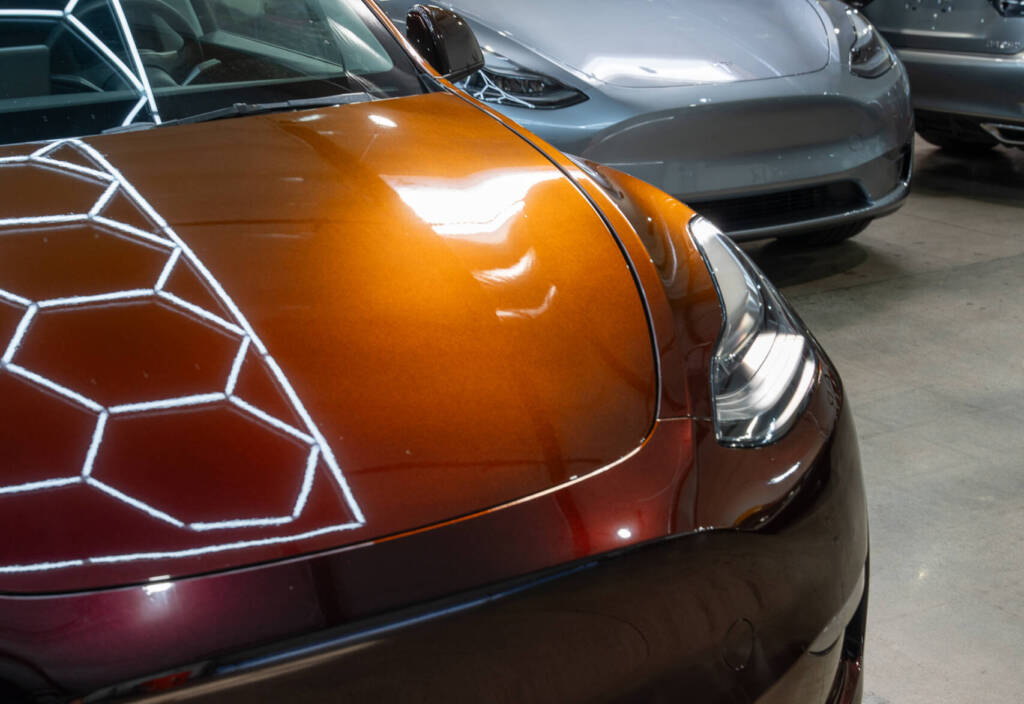
Vinyl film finishes determine how light interacts with a vehicle’s surface. Understanding the core qualities of matte, gloss, and satin—plus specialty options—lays the foundation for choosing the right wrap.
What Defines a Matte Car Wrap Finish?
A matte car wrap finish provides a non-reflective surface by diffusing light, creating a flat and understated aesthetic. This finish absorbs glare and highlights every contour without shine, giving a sophisticated, modern appearance. Matte wraps resist fingerprints and minor swirl marks but require careful cleaning to avoid sheen irregularities. The result is a bold statement that emphasizes shape over shine, making matte an enduring choice for those seeking a stealthy, refined look.
How Does a Gloss Car Wrap Finish Enhance Vehicle Appearance?
A gloss car wrap finish boosts vibrancy by reflecting light uniformly, mimicking traditional clear-coated paint. High reflectivity amplifies color depth and creates a mirror-like shine that accentuates curves and trim. Gloss wraps are easier to clean—dirt beads on the surface—yet they reveal surface imperfections more readily. For enthusiasts who prioritize a showroom shine, gloss vinyl offers a classic, polished presentation that enhances resale appeal and visual impact.
What Makes Satin Car Wrap Finishes Unique?
A satin car wrap finish strikes a balance between matte and gloss by providing a subtle sheen. It disperses light softly, producing an elegant luster without overwhelming glare. Satin hides minor surface blemishes better than gloss and maintains more depth than matte. This finish appeals to drivers who desire a sophisticated, dynamic look that shifts in appearance under changing light. Satin wraps deliver both the understated refinement of matte and a hint of shine found in gloss.
Which Specialty Wrap Finishes Are Available Beyond Matte, Gloss, and Satin?
- Chrome Wraps: Mirror-like shine for maximum reflectivity.
- Carbon Fiber Wraps: Textured pattern that mimics woven composite.
- Brushed Metal Finishes: Subtle directional grain resembling anodized metal.
- Color-Changing Wraps: Thermochromic or pearlescent films that shift hue with angle and temperature.
These specialty wraps serve unique styling needs—from show cars craving attention to performance vehicles seeking a high-tech appearance. Exploring these options unlocks creative freedom for bespoke vehicle transformations.
How Do Matte, Gloss, and Satin Car Wrap Finishes Compare?


What Are the Key Differences in Reflectivity and Texture?
| Finish | Reflectivity Level | Surface Feel |
| Matte | Low (diffuse) | Smooth, flat |
| Satin | Medium (soft glow) | Silky, slight sheen |
| Gloss | High (mirror-like) | Slick, polished |
How Do Durability and Maintenance Requirements Vary by Finish?
- Matte films need matte-specific shampoos and hand washing to prevent shine buildup.
- Satin wraps benefit from gentle, pH-neutral cleaners and soft microfiber drying.
- Gloss vinyl tolerates standard car wash solutions and occasional wax for added protection.
In terms of durability, satin often resists minor scratches better than gloss and shows marks less than matte. Knowing these maintenance demands ensures long-term performance tailored to finish type.
What Are the Cost Differences Among Matte, Gloss, and Satin Wraps?
Budgeting for both material and installation labor ensures you balance aesthetic preference with financial considerations.
- Matte wraps typically cost 5–10% more due to specialized matte adhesives and finishes.
- Satin finishes fall in the mid-range, with pricing similar to gloss but slightly higher for premium films.
- Gloss wraps represent the baseline price for standard vinyl but may increase with high-gloss
Which Finish Is Best Suited for Different Vehicle Types and Styles?
Selecting a finish aligned with vehicle type and intended use ensures both aesthetic harmony and practical durability.
- Sports Cars – Gloss finish amplifies color highlights and aerodynamic lines.
- Luxury Sedans – Satin finish delivers refined elegance without excessive glare.
- Off-road Trucks – Matte finish hides dust and scratches, providing a rugged, tactical look.
- Show Vehicles – Chrome or color-changing specialty wraps maximize attention.
How Should You Choose the Perfect Car Wrap Finish for Your Vehicle?
What Personal Style Factors Influence Finish Selection?
- Preference for bold versus subtle statements.
- Desire for attention versus understated sophistication.
- Color compatibility with trim, wheels, and branding elements.
Understanding how finishes complement your vision ensures the wrap enhances your vehicle’s personality rather than clashes with it.
How Does Climate Affect the Longevity and Performance of Wrap Finishes?
Factoring in climate conditions when choosing a finish helps maximize lifespan and appearance integrity.
- Hot, sunny climates accelerate UV exposure, causing gloss films to fade if unprotected.
- Cold or wet regions demand film flexibility to resist cracking.
- Coastal areas require corrosion-resistant adhesives to counter salt air.
What Budget Considerations Impact Finish Choice?
- Higher-grade films with extended warranties typically cost more upfront but reduce long-term upkeep.
- Complex specialty wraps incur additional labor hours.
- Seasonal promotions or bundled installation offers can offset premium film costs.
Balancing up-front investment with expected maintenance and durability secures a cost-effective wrap solution.
How Do Vehicle Type and Usage Affect Finish Suitability?
- Daily Drivers need low-maintenance finishes like gloss.
- Show Cars benefit from eye-catching specialty wraps.
- Fleet Vehicles require cost-efficient films that hide dirt, favoring matte.
Aligning finish choice with usage patterns ensures both practical performance and visual consistency.
What Are the Installation Options for Custom Car Wrap Finishes?

What Are the Benefits of Professional Car Wrap Installation?
Professional application ensures:
- Accurate panel alignment without surface distortion.
- Heat-assisted adhesive activation for seamless edges.
- Warranty coverage for material and labor provided by certified installers.
Investing in trained technicians leads to flawless results and optimal film performance over time.
Can You Install a Car Wrap Yourself? Pros and Cons of DIY Application
Weigh these factors before committing to a DIY application.
Pros:
- Reduced labor costs.
- Learning a new skillset for future projects.
Cons:
- Potential for bubbles, creases, and misalignment.
- Lack of warranty or material guarantees.
- Extended installation time and frustration for novices.
How Does Installation Affect Wrap Durability and Appearance?
Skillful technique by experienced installers safeguards both the look and lifespan of the wrap.
Proper installation:
- Strengthens film adhesion to withstand environmental stress.
- Ensures uniform surface tension to prevent premature peeling.
- Minimizes heat and moisture infiltration at seams.
How Do You Maintain and Care for Different Car Wrap Finishes?
What Are General Cleaning Tips for All Vinyl Wrap Finishes?
Consistent gentle care lays the groundwork for finish-specific routines.
- Rinse off loose debris before washing.
- Use a soft, pH-neutral car shampoo.
- Avoid abrasive brushes and solvents.
- Dry with a clean microfiber towel to prevent water spots.
How Do You Maintain a Matte Car Wrap Finish?
- Use matte-specific shampoo without gloss additives.
- Wash by hand; avoid automatic car washes.
- Skip waxes and polishes to preserve non-reflective texture.
- Promptly remove bird droppings and sap to avoid staining.
Dedicated matte care products maintain flat uniformity and prevent unwanted sheen.
What Are the Best Practices for Gloss Car Wrap Maintenance?
- Apply a high-quality wax or ceramic coating for UV protection.
- Use mild detergents and soft sponges for washing.
- Polish with non-abrasive compounds to refresh shine.
- Regularly inspect for chips and lift edges, repairing promptly.
Gloss finishes reward routine protection with enduring brilliance.
How Should You Care for Satin Car Wrap Finishes?
Preserve satin’s soft glow while preventing over-shining or dull spots.
- Select gentle cleaners free of gloss enhancers.
- Hand wash with soft mitts, then pat dry.
- Apply a satin-safe detail spray to enhance subtle sheen.
- Avoid high-sheen waxes that can create inconsistent gloss patches.
What Troubleshooting Tips Help Preserve Wrap Appearance?
Proactive problem-solving prevents small flaws from evolving into major repairs.
- Air Bubbles: Smooth out with low-temperature heat and a squeegee.
- Creases: Reheat and reposition if caught early.
- Peeling Edges: Trim excess film and re-tack with edge sealant.
- Staining: Use isopropyl alcohol on a microfiber cloth for spot cleaning.
Navigate the Custom Car Wrap Finishes Guide
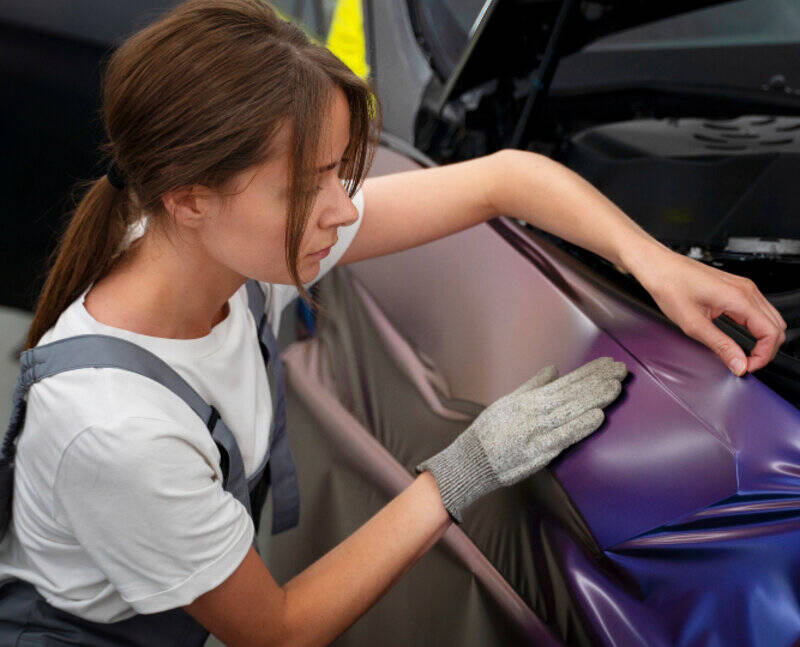
What Makes 3M Vinyl Films a Top Choice for Car Wraps?
3M films excel due to:
- Advanced cast vinyl technology for superior conformability.
- UV and chemical resistance that prolongs color vibrancy.
- Comprehensive warranty coverage up to 10 years.
- Wide range of finishes (matte, gloss, satin, chrome) in multiple series.
3M’s research-driven innovations deliver consistent performance for professional applications.
How Does Avery Dennison Compare in Vinyl Wrap Quality?
Avery Dennison stands out through:
- RapidAir™ adhesive for bubble-free, repositionable installation.
- Avery MPI and Supreme wrapping series offering extended durabilities.
- Sustainable manufacturing practices with eco-certifications.
- Broad palette of specialty textures and gloss levels.
Their blend of installer-friendly features and finish variety makes Avery Dennison a go-to brand.
What Other Manufacturers Offer Specialty Wrap Finishes?
- Hexis: Durable films with textured metal and satin options.
- KPMF: Unique pearlescent and color-shift finishes.
- Oracal: Cost-effective calendared films for short-term applications.
- TeckWrap: Innovative cast films with self-healing properties.
Exploring multiple brands uncovers niche finishes and price points.
What Are the Differences Between Cast and Calendared Vinyl Films?
| Film Type | Thickness | Conformability | Lifespan | Best Use Cases |
| Cast Vinyl | Thin | High | 5–10 years | Complex curves, premium wraps |
| Calendared | Thicker | Moderate | 2–3 years | Flat surfaces, budget wraps |
What Are the Benefits of Paint Protection Film Compared to Vinyl Wrap Finishes?
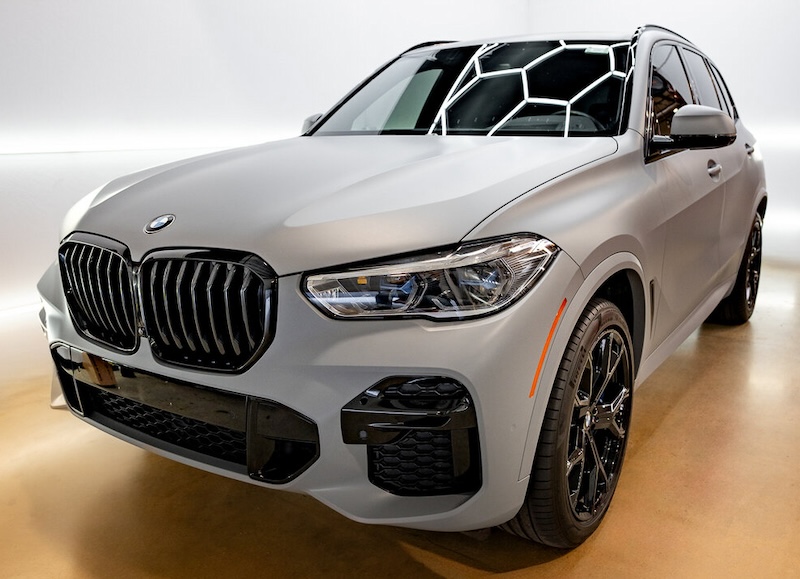
Understanding the Technology of Car Paint Protective Film
Paint Protection Films (PPF) are typically transparent films made from polyurethane, engineered to safeguard vehicle exteriors. These films are recognized for their flexibility, durability, and self-healing properties, which allow minor scratches to disappear with exposure to heat. PPF functions by absorbing and dispersing impact energy, providing superior resistance to abrasion, impacts, and chemical damage, while also protecting against UV radiation.
This information details the advanced material science and protective capabilities of PPF, complementing the article’s section comparing PPF with colored vinyl wraps.
How Does Paint Protection Film Protect Vehicle Paint?
PPF provides:
- Scratch and chip resistance through tough, self-healing polymers.
- UV filtering to prevent paint oxidation and fading.
- Clear, nearly invisible coverage that retains bodywork aesthetics.
- Hydrophobic surfaces that repel dirt and contaminants.
This transparent armor preserves underlying paint while remaining discreet.
When Should You Choose PPF Over a Colored Vinyl Wrap?
- Maintaining factory paint and resale value is paramount.
- You need all-weather protection for high-impact areas (hood, fenders).
- You prefer a no-change aesthetic while guarding against rock chips.
- Budget allows for premium protective investment.
PPF specializes in preservation rather than dramatic color transformations.
Can PPF Be Combined with Custom Wrap Finishes?
Yes, layering clear PPF beneath colored vinyl offers the best of both worlds:
- Underlying paint receives maximum defense from PPF.
- Vinyl wrap provides the desired finish and design.
- Combined systems extend overall film life and ease wrap removal.
This hybrid approach merges protection and personalization seamlessly.
Informed vehicle customization requires understanding how each wrap finish performs, how environmental factors and usage patterns shape your choice, and how to care for and install these films professionally. By evaluating aesthetic impact, maintenance demands, cost considerations, and brand strengths, you can select a custom car wrap finish that enhances both appearance and durability. Whether you choose the sleek stealth of matte, the vibrant shine of gloss, or the nuanced glow of satin—or explore specialty and protective films—this guide empowers you to transform your vehicle with confidence.
Frequently Asked Questions
What is the average lifespan of a custom car wrap?
The lifespan of a custom car wrap can vary significantly based on the type of vinyl used, installation quality, and maintenance practices. Generally, high-quality cast vinyl wraps can last between 5 to 7 years when properly installed and cared for. Factors such as exposure to UV rays, environmental conditions, and the frequency of cleaning can also impact longevity. Regular maintenance and using appropriate cleaning products can help extend the life of your wrap.
Can a car wrap be removed without damaging the paint?
Yes, a professionally installed car wrap can typically be removed without damaging the underlying paint, provided the wrap is removed carefully and correctly. It is advisable to have a trained professional handle the removal process, as they can use the right techniques and tools to minimize the risk of paint damage. If the wrap has been on the vehicle for an extended period, heat may be applied to soften the adhesive, making removal easier and safer.
How do I choose the right color for my car wrap?
Choosing the right color for your car wrap involves considering several factors, including personal style, vehicle type, and how the color complements existing features like trim and wheels. It’s also important to think about the intended use of the vehicle; for example, bold colors may be more suitable for show cars, while subtle tones might be better for daily drivers. Additionally, viewing color samples in different lighting conditions can help ensure you make the best choice.
Are there any warranties available for car wraps?
Many manufacturers offer warranties for their car wraps, which can vary in length and coverage. Typically, warranties cover issues like fading, cracking, or peeling under normal conditions. It’s essential to check the specific warranty details from the manufacturer or installer before purchasing. Professional installation often comes with its own warranty, providing additional peace of mind regarding the quality of the application and the materials used.
What are the environmental impacts of vinyl car wraps?
Vinyl car wraps can have environmental impacts, primarily related to the production and disposal of the materials. However, many manufacturers are now adopting more sustainable practices, such as using eco-friendly inks and recyclable materials. Additionally, vinyl wraps can help protect the underlying paint, potentially extending the life of the vehicle and reducing the need for repainting. When considering a wrap, it’s beneficial to inquire about the manufacturer’s sustainability initiatives and recycling options.
How can I ensure my car wrap stays in good condition?
To maintain your car wrap’s appearance and longevity, follow a few key practices: wash the vehicle regularly using a soft, pH-neutral shampoo, avoid automatic car washes with brushes, and use microfiber towels for drying. Additionally, protect the wrap from harsh chemicals and avoid parking in direct sunlight for extended periods. Applying a protective sealant designed for vinyl wraps can also help shield against UV damage and environmental contaminants.
Ready to Transform Your Vehicle?
Whether you want the bold stealth of matte, the eye-catching shine of gloss, or the refined glow of satin—SFG Wraps has the expertise, premium materials, and craftsmanship to bring your vision to life.
Get a free quote todayand explore the perfect custom wrap finish for your car.

